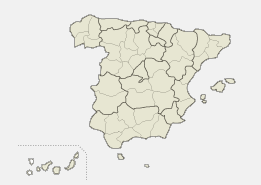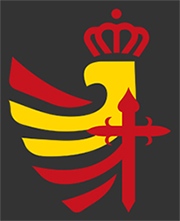- Inici
- Texto no traducido
- Mali, the most human side
Mali, the most human side
lunes 17 de febrero de 2020
Nombre: 94
Throughout November, the ‘King Alfonso the 13th Brigade, II in the Legion, took over in Mali. As the majority of the 15th Spanish contingent, they gave continuity to the European Union’s Training Mission, and to those projects which were being developed. Although the Spaniards’ main job is to provide a protection force and train the Malian soldiers, they cannot leave out the most human side of the mission, which is carried out by the Civil-Military Cooperation (CIMIC) team
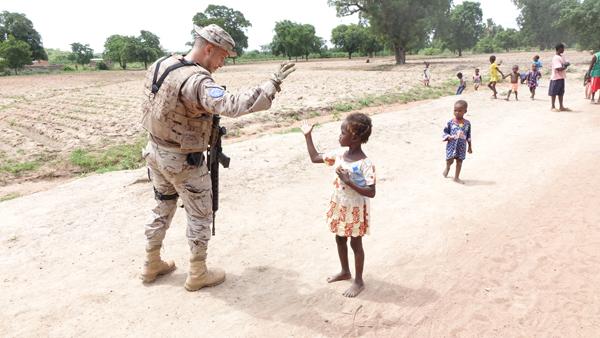
The contingent has recently finished two rapid impact projects, which were started previously, and which consisted of a school in Feogun and a well in Bafinkabougou, which are added to the list of other projects. A review of the projects carried out in 2019 shows the good work which has been done: a total of 14 rapid impact projects were completed, including the restoration of schools, improvements in the facilities of various health centres, and purchasing laboratory equipment to perform blood analysis etc.
In the mission, personnel are taking part in the development of CIMIC work, divided between Bamako, where the headquarters and the projects’ control centre are, and Koulikoro, where the Protection Force is. However, because of the rise of CIMIC activity in the area, they have been reinforced by a team from the 1st Information Operations Regiment, whose objective is to perform the most specific functions related to the rapid impact projects. In this way, they provide the mission with greater capabilities.
highlights Captain Paredes, who is the chief of the CIMIC team in Koulikoro.
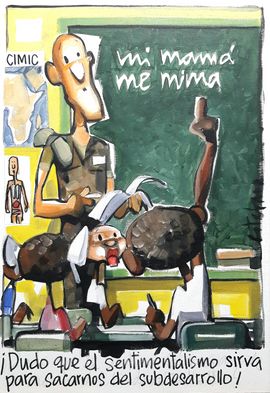
In this regard, he explains that the procedure to follow when considering new projects is to inform the CIMIC officer in Bamako. Once it has been approved, the Protection Force is in charge of its development until it is inaugurated. “In order to assure the involvement of the local authorities in these projects, they check in before the project is finished in order to guarantee that it is maintained and used correctly by the population,” explains the Captain.
So, what are Mali’s main needs and what is the mission focussing its efforts on? One of the most fundamental problems is access to water, which is solved, for example, by building wells. As well as this, there is the issue of sanitation, so they are working on building spaces for vaccinations, toilets for health centres, and improving or providing equipment for those constructions which have already been built.
As well as this, they are also working to reduce illiteracy. More than 48% of Mali’s population is under 15 years old, making the educational projects essential in order to alleviate the negative effects of low education levels.
As it happens, near the Koulikoro base, where the majority of the Spanish contingent can be found, they built a school which was completed in 2016 and is beginning to yield results. It now accepts more than 350 children of different ethnicities and religions, with no form of exclusion.
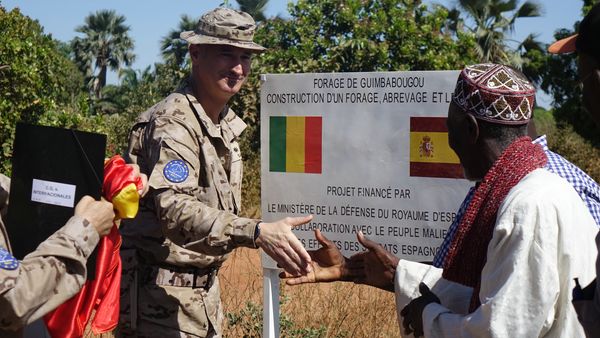
They look for local companies to carry out these projects under the supervision of CIMIC personnel from the Protection Forces.
For some children, the possibility of going to school has gone from a dream to a reality. For the soldiers who work on this mission on a day to day basis, it is an unforgettable personal experience:“In this part of the world, time is measured differently and it makes you realise how little it takes to be happy, it helps you to value what you have, appreciating the present and learning to enjoy it,” says Warrant officer class 1 Vicente, chief of the CIMIC reinforcement team.
Staff sergeant Amorín, assistant in the CIMIC reinforcement team, has more than 8 years of experience in this field, as well as three foreign missions, and reveals that each operation is different. “In the case of our mission in Mali, the people are very much inclined to collaborate,” he says. However, he maintains that it is fundamental to have broad cultural knowledge about the area in which they will be working, in order to avoid possible misunderstandings.“The personnel from the 1st Information Operations Regiment take courses at different levels to strengthen their communication skills, assertiveness, empathy and non-verbal communication,” destaca.
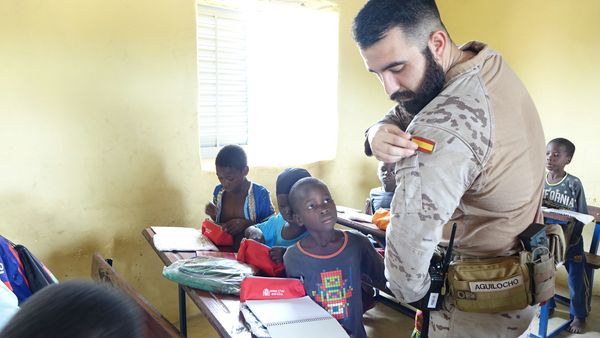
UNITATS DE L'EXÈRCIT
- Araba Álava |
- Albacete |
- Alicante |
- Almería |
- Asturias |
- Ávila |
- Badajoz |
- Barcelona |
- Burgos |
- Cáceres |
- Cádiz |
- Cantabria |
- Castellón |
- Ceuta |
- Ciudad Real |
- Córdoba |
- A Coruña |
- Cuenca |
- Girona |
- Granada |
- Guadalajara |
- Gipuzkoa |
- Huelva |
- Huesca |
- Islas Baleares |
- Jaén |
- León |
- Lleida |
- Lugo |
- Madrid |
- Málaga |
- Melilla |
- Murcia |
- Navarra |
- Ourense |
- Palencia |
- Las Palmas |
- Pontevedra |
- La Rioja |
- Salamanca |
- Segovia |
- Sevilla |
- Soria |
- Tarragona |
- Santa Cruz de Tenerife |
- Teruel |
- Toledo |
- Valencia |
- Valladolid |
- Bizkaia |
- Zamora |
- Zaragoza
